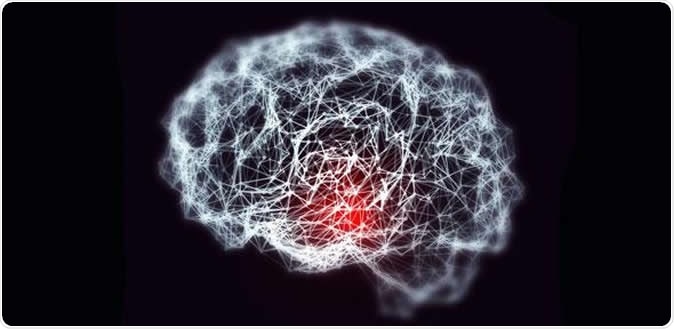Researchers in Sweden and United Kingdom have made a breakthrough in Alzheimer’s disease research. They could soon be on the path to develop new drugs that could fight the disease more effectively.

Researchers have developed a new way to target the toxic particles that destroy healthy brain cells in Alzheimer’s disease.
Alzheimer’s disease remains one of the most dreaded and common forms of dementia that affects nearly 5.7 million Americans (as per the statistics from Alzheimer’s Association). The disease and its pathology and progression is still not clearly understood. Beta amyloid protein and the tau protein in the brain are known to play important roles in the pathogenesis of the disease. These proteins may fail to fold normally leading to amyloid clumps and plaques or tau protein tangles in the brain. When these progressively affect the brain the symptoms of memory loss etc. appear. The plaque formation is often the first to occur that causes progression of the disease.
The researchers have found methods to create drugs that could clear away these plaque formation within the brain. Some of the earlier drugs targeting the plaques have failed mainly because they have been used too late. Once the memory loss symptoms appear, the damage is usually too advanced to reverse. The new approach would be to treat patients who are at high risk of developing Alzheimer’s disease using anti-amyloid beta drugs so that they do not go on to develop Alzheimer’s disease.
According to study author Michele Vendruscolo, a molecular chemist at the University of Cambridge in the UK drugs used against these plaques are usually those that can target the proteins (in this case amyloid beta) and bind to them. The problem with Alzheimer’s she explained is that amyloid beta oligomers are unstable and are repeatedly breaking down and changing shape. This makes it difficult to make a target drug that can recognize the molecules and bind with them. The better new approach is to develop a technique that can slow down the formation of these oligomers in the first place. Vendruscolo said they have developed a method to screen for the potential candidate drugs that can perform this. The results of the study were published in the latest issue of the Proceedings of the National Academy of Sciences.
Vendruscolo in a press release by the University of Cambridge said that this technique is a “world first” and the statement says, “Cambridge scientists reveal ground-breaking plan to target cause of Alzheimer’s disease.” The new technique that they have developed is called SKAR (an acronym for Structure-Kinetic Activity-Relationship).
Vendruscolo and the team have co-founded a biotech company, called Wren Therapeutics based at University of Cambridge. They would go on to develop the drugs that they are testing on animals in the laboratory.
Leaks in blood brain barrier linked with Alzheimer’s disease
University of Southern California researchers have come up with a theory that shows that leaks in the blood brain barrier could be associated with onset of neurodegenerative diseases such as Alzheimer’s, Parkinson’s, amyotrophic lateral sclerosis, Huntington’s disease and multiple sclerosis.
The team says that this could be a warning sign of the diseases in question. The blood brain barrier is a membrane that protects the brain from harmful particles. As the blood brain barrier weakens proteins such as amyloid beta moves from different parts of the body into the brain. This protein is harmless elsewhere but in the brain it can form degenerative plaques leading to cognitive damage.
Berislav Zlokovic, a researcher on the team said, “Cognitive impairment, and accumulation in the brain of the abnormal proteins amyloid and tau, are what we currently rely upon to diagnose Alzheimer's disease but blood-brain barrier breakdown and cerebral blood flow changes can be seen much earlier.” If the dysfunction of the blood brain barrier could be checked then clues to the disease could be obtained he said.
The review was published in the latest issue of the journal Nature Neuroscience.
Sources: http://www.pnas.org/lookup/doi/10.1073/pnas.1807884115 and https://www.nature.com/articles/s41593-018-0234-x#Abs1